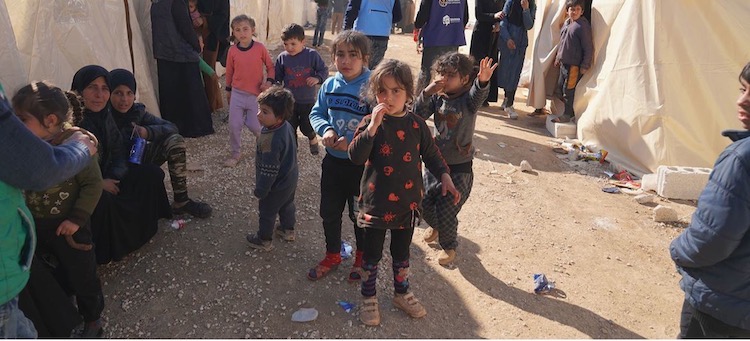By Thalif Deen
UNITED NATIONS, 2 March 2023 (IDN) — When the 193-member UN General Assembly adopted a resolution on 23 February calling on Russia to “immediately, completely and unconditionally” withdraw all of its military forces from Ukraine and the cessation of hostilities, the vote was 141 in favour, 32 abstentions and seven against.
Besides Russia, the six “noes” included Belarus, North Korea, Mali, Eritrea, Nicaragua and Syria, the only Middle Eastern country openly supportive of the invasion.
Still, the Syrian vote was highly predictable—compared to the other five countries—because of Syria’s close political, economic and military relationship with Moscow over several decades.
In return, Syria remains heavily protected at the UN Security Council primarily because of the unyielding support from Russia, and more recently, China—both veto-powered permanent members of the Council.
Asked about the US relationship in the context of humanitarian assistance to Syria, Ned Price, Spokesman for the State Department told reporters February 27: “Our position on the Assad regime has not changed. Now is not the time for normalization. Now is not the time to upgrade relations with the Assad regime”.
“We believe we can fulfill, and that countries around the world can fulfill,” addressing the humanitarian needs of the Syrian people, without changing or upgrading their relationship with the Assad regime.
“The immediate humanitarian imperative is our focus,” he noted.
Despite its brutal suppression of an ongoing 12-year-long civil war, Syria continues to escape severe UN condemnation primarily because of Russian support.
Syria’s strong relationship with Russia goes back to President Hafez al-Assad, the father of the current President, who in October 1970 signed a 25-year Treaty of Friendship and Cooperation with the then-Soviet Union ensuring debt forgiveness and an uninterrupted flow of weapons to Syria.
And that relationship has continued with the current President, Bashar al-Assad, who assumed office in June 2000 at the age of 34, after the death of his father.
In an interview with IDN, Pieter D. Wezeman, a Senior Researcher with the Arms Transfers Programme at the Stockholm International Peace Research Institute (SIPRI), said from the 1950s until 1992 the USSR was by far the largest supplier of arms to Syria, often financed by soft loans.
After the USSR dissolved, Russia continued to supply arms, but no longer under the same favorable conditions as before, and thus at a much lower level.
After many years of economic difficulties, he pointed out, Syria failed to keep its armed forces abreast of modern military technology, and around 2006 to 2011 it had started to modernize its armed force again and placed orders for new Russian arms.
Russia has agreed to write off $9.8 billion in debt, 73% of Syria’s outstanding debt, mainly related to arms deals with the USSR going back to the Soviet era.
From 2011, when the Syrian conflict started, several of the major arms deals did not lead to deliveries, said Wezeman.
“It is not entirely clear why this was the case, possibly the major arms on order were not seen as immediately needed in the civil war, and later, Russia sent its own major arms in support of the al-Assad regime.”
Around 2018, he said, “we see again indications of Syria receiving major weapons from Russia, including air defence systems and a few combat aircraft and combat helicopters”.
Asked about the types of Russian weapons in Syria’s military inventory, he said most of the weapons in the Syrian arsenals are of USSR or Russian origin, from combat aircraft to tanks, and from missiles to air defence equipment.
Asked about other arms suppliers to Syria, Wezeman said very few countries have been supplying arms to Syria. And in the past decade, Syria has remained very dependent on Russia for its arms.
Iran has supplied certain types of rocket artillery and munitions to Syria, but the volumes involved are unknown, he said.
North Korea has in the past supplied ballistic missile technology to Syria, but it is not known whether that relationship has continued to exist in any substantial form after around 2010, Wezeman added.
Meanwhile, during a briefing on the current situation, the UN’s Emergency Relief Coordinator (ERC) Martin Griffiths told the Security Council on February 28 that the earthquakes in Syria and Türkiye last month resulted in the deaths of at least 50,000 while it left many more injured, tens of thousands missing, and hundreds of thousands homeless.
Reflecting on the scale and gravity of needs across Syria, he said the 2023 response plan will require $4.8 billion, the largest humanitarian appeal currently active.
The worst-affected area was hit again by strong aftershocks just on Monday, he added. Even before this latest tragedy, some 15.3 million people, or 70 per cent of the country’s population, needed humanitarian assistance stemming from the ongoing conflict.
“Many people are afraid to return to their homes,” he said, recalling a visit to quake-affected areas, where hundreds of buildings are still at high risk of collapsing, with thousands more that may need to be demolished.
Four to five families were packed into tents, and the risk of disease is growing, amid pre-existing cholera outbreaks, he said. At the same time, food prices are skyrocketing, and women and children face increased harassment, violence, and risk of exploitation. [InDepthNews]
Image: Families affected by the earthquake in northwestern Syria are being accommodated at a reception centre located just outside the city of Afrin. © UNICEF/UNOCHA
IDN is the flagship agency of the Non-profit International Press Syndicate.
Visit us on Facebook and Twitter.
We believe in the free flow of information. Republish our articles for free, online or in print, under Creative Commons Attribution 4.0 International, except for articles that are republished with permission.

